Plants are called _________ because they make their own food.
Producers
Create a food chain using the organisms below
A. clams - a primary consumer
B. sardines - a secondary consumer
C. sharks - a tertiary consumer
D. kelp - a primary producer
kelp to clams to sardines to sharks
____________ is an organism that produces organic compounds from simple substances such as water and carbon dioxide
Producer
True or False: Producers are at the bottom level of both the energy pyramid and the biomass pyramid.
True!
irst layer of the energy pyramid
Producer
The insect eats the plant
producer/consumer
The organism that starts the food chain
producer/ autotrophic/plant
A series of food chains all together is a
food web
When ants protect a tree and the tree provides them with shelter (type of symbiosis)
Mutualism
What do we call the dotted line labeled "D" 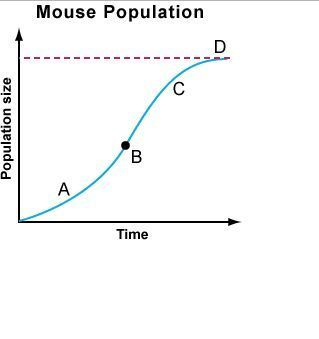 Public
Public
Carrying Capacity
What is a limiting factor?
Something that limits the species of a population in an ecosystem
One food chain in an ecosystem might be grass, a mouse, a snake and a hawk. Which one is the producer?
Grass
A food web is a cycle because it transfers _____ from one organism to another.
A. A chain
B. A web
C. Energy
D. Nothing
C. Energy
Organisms that feed either directly or indirectly on producers are _____________.
Consumers
Complete burning of plant material returns carbon primarily to the _____________.
Atmosphere
The amount of energy given to each trophic level from the level below is
10%
Lion eats antelope
predator / prey
The arrows represent
the flow of energy
What eats what
The second layer to eat something is called _______________. They are located in the ____ trophic level.
secondary consumers
3rd trophic level
What is a close and/or long time relationship between two species?
Symbiosis Definition
In an ecosystem, what is the carrying capacity?
the maximum number of individuals of a population that the environment can support
Give at least 2 examples of a BIOTIC limiting factor.
Disease (bacteria), food availability, predators, etc.
Which of these organisms would most likely be found at the top of an energy pyramid?
A. clams - a primary consumer
B. sardines - a primary consumer
C. sharks - a secondary consumer
D. kelp - a primary producer
C. sharks- a secondary consumer
What trophic level do each organism belong to in an energy pyramid?
A. clams - a primary consumer
B. sardines - a secondary consumer
C. sharks - a tertiary consumer
D. kelp - a primary producer
Clam - 2nd trophic level
Sardines - 3rd trophic level
sharks - 4th trophic level
kelp - 1st trophic level
____________________________ are organisms that break down dead matter in an ecosystem.
Decomposers
True or False: Decomposers absorb carbon from the atmosphere, so if they were removed more carbon would reach the atmosphere.
False! Decomposers RELEASE carbon into the atmosphere, so if they were removed LESS carbon would reach the atmosphere.
Another name for producers
Autotrophic
Fish eating phytoplankton (does photosynthesis)
Consumer / producer
The highest animal on the food chain
apex predator
Herbivores are considered this because they only eat plants
primary consumers
When a barnacle attaches itself to a whale's fin (does not affect whale) is ________________
commensalism
Identify a possible limiting factor that can cause the mouse population to reach its carrying capacity.
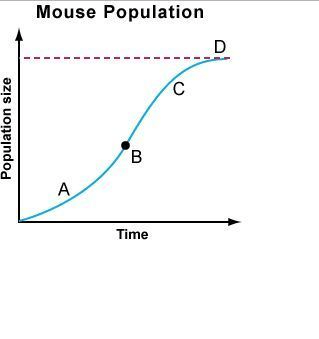
Limiting Factors: predators, habitat, competition for resources
Give at least 2 examples of ABIOTIC limiting factors
drought, severe winter, natural disaster, virus-caused diseases, etc.
The diagram below shows the cycling of nutrients in an ecosystem.
The removal of which of the following groups would cause an immediate decrease in the amount of energy flowing through the system?
Producers
Within this food chain, grass→ grasshopper → frog → snake, which organism would we expect to have the lowest population?
Snake
An omnivore eats
plants and animals
The two type of biomes
terrestrial and aquatic
The top layer of the energy pyramid
What is apex consumer/ tertiary consumer
Lions and cheetahs hunting a zebra.
Competition / predator and prey
What is biotic
Living components of an ecosystem
Biodiversity is
the different amounts of life
+ , - is
parasitism
What is the carrying capacity in this graph?
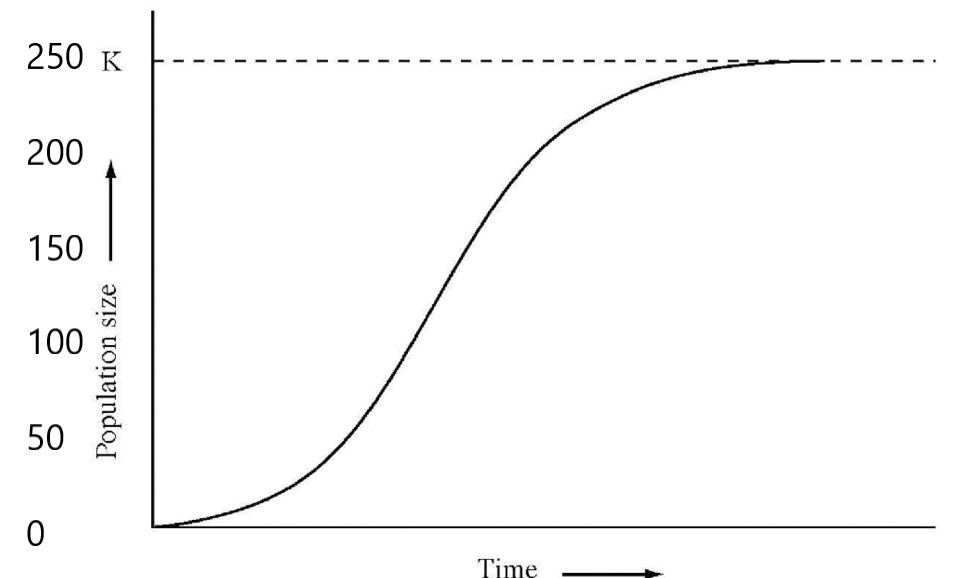
about 250
In a forest ecosystem, which of the following is the best example of a limiting factor for a rabbit population?
a. the robin (bird) population
b. amount of grass/flowers available
c. the amount of sunlight
d. rabbits have no limiting factors
b. amount of grass/flowers available
A diagram of a food web is shown below.
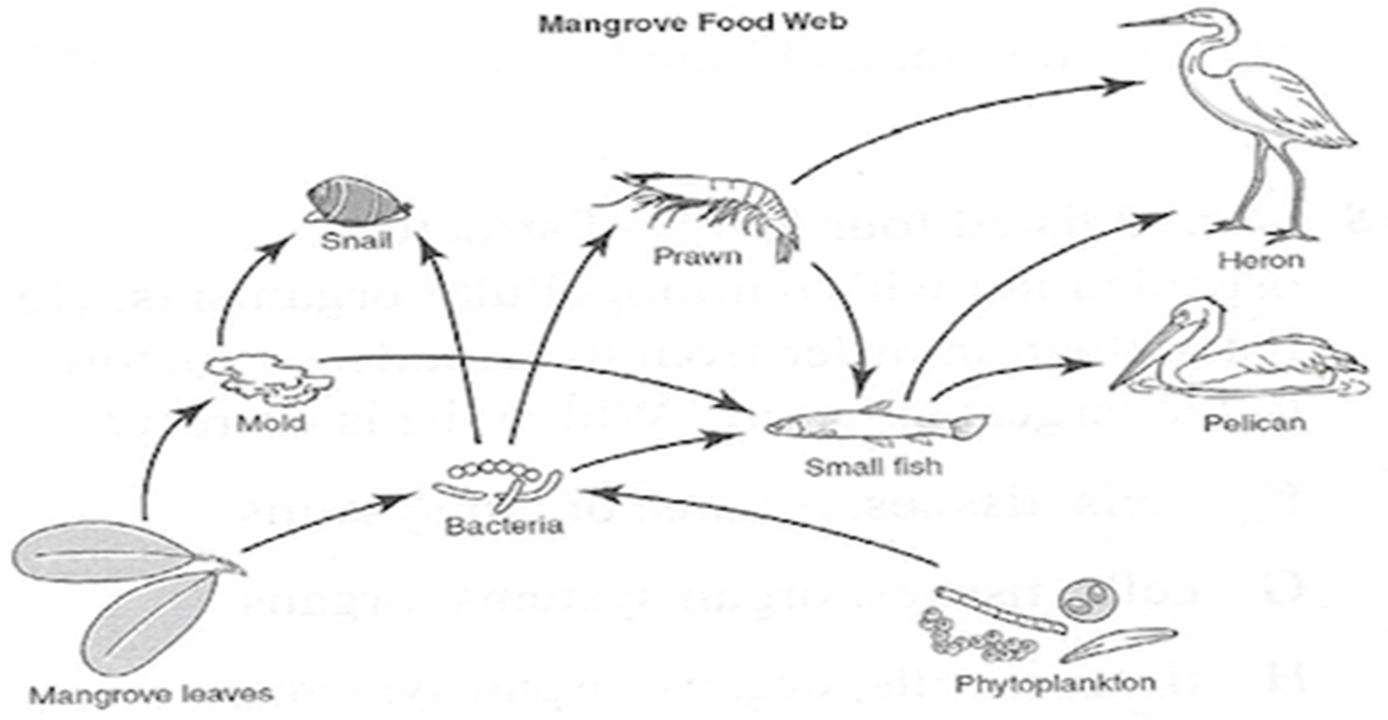
Which organism receives the least amount of energy from the producers?
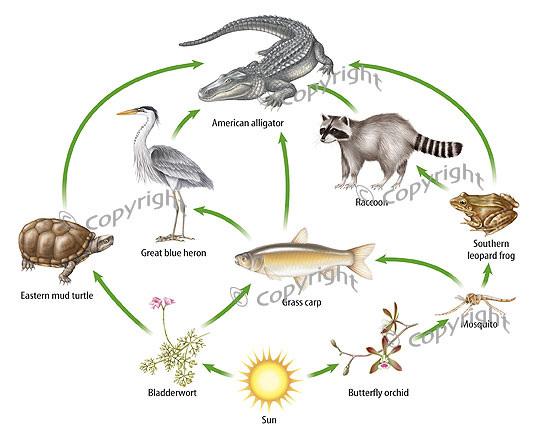
According to this food web, what organisms would be affected if the Great blue heron were to go extinct?
American alligator and Grass carp
____________________________________ is a chemical process within cells where sugar and oxygen react to form carbon dioxide and water resulting in the release of energy.
The framework of organic molecules essential to all organisms is composed mainly of carbon atoms. What processes are involved in the cycling of carbon within an environment?
Photosynthesis and Respiration
Energy obtained from eating another organism
Heterotroph
The Nonliving organism in an ecosystem are __
abiotic
These organisms are NOT able to produce their own food.
Heterotrophs / Consumers
Nitrogen fixing bacteria living on the roots of a legume. The bacteria get a shelter and the plants get nitrogen.
mutalism
Which of the following might cause the carrying capacity of this rabbit population to DECREASE?
a. increase in food for a few years
b. fewer predators
c. harsh winters for a few years
d. more resources available in the ecosystem
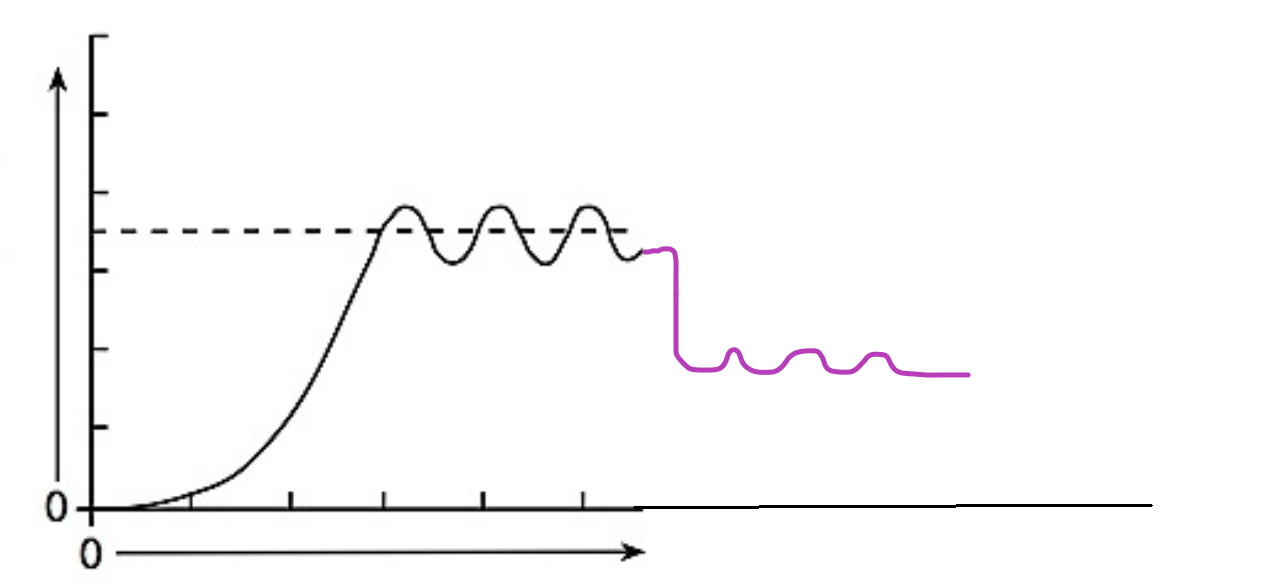
c. harsh winters for a few years
Based on this graph, what is the limiting factor for the hare population?
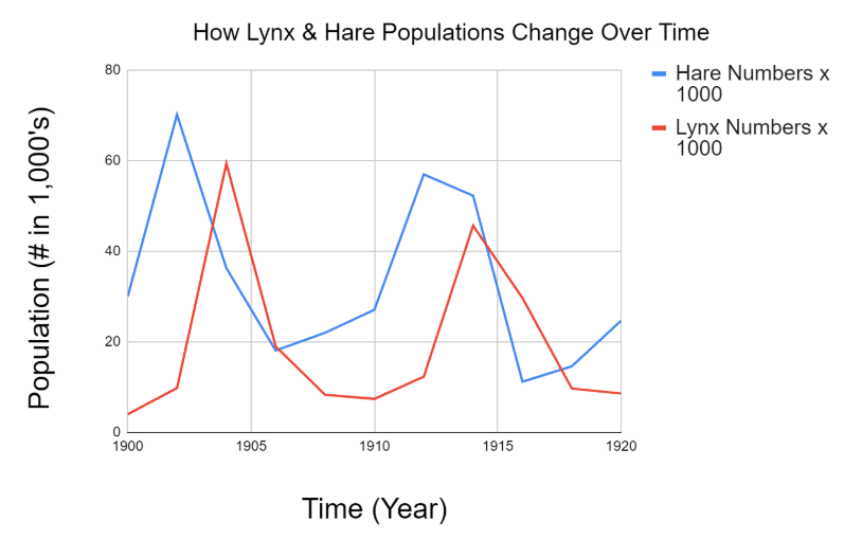
the lynx population
(just like what we saw with the ecological pyramids, there are more primary consumers like the hare than there are top predators like the lynx)
